To provide the best experiences, we use technologies like cookies to store and/or access device information. Consenting to these technologies will allow us to process data such as browsing behaviour or unique IDs on this site. Not consenting or withdrawing consent, may adversely affect certain features and functions.
The technical storage or access is strictly necessary for the legitimate purpose of enabling the use of a specific service explicitly requested by the subscriber or user, or for the sole purpose of carrying out the transmission of a communication over an electronic communications network.
The technical storage or access is necessary for the legitimate purpose of storing preferences that are not requested by the subscriber or user.
The technical storage or access that is used exclusively for statistical purposes.
The technical storage or access that is used exclusively for anonymous statistical purposes. Without a subpoena, voluntary compliance on the part of your Internet Service Provider, or additional records from a third party, information stored or retrieved for this purpose alone cannot usually be used to identify you.
The technical storage or access is required to create user profiles to send advertising, or to track the user on a website or across several websites for similar marketing purposes.
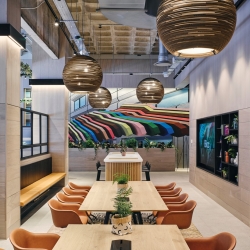





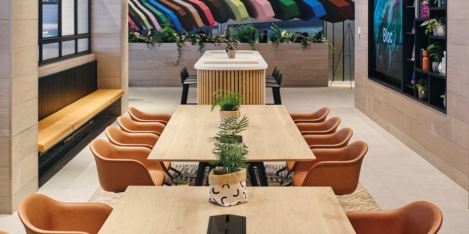

 The brains behind
The brains behind 
 Holbein Gardens, located at 7 Holbein Place in the heart of London’s Belgravia, will lead the way for future schemes on the road to achieving net zero carbon. Independent multidisciplinary engineering consultancy
Holbein Gardens, located at 7 Holbein Place in the heart of London’s Belgravia, will lead the way for future schemes on the road to achieving net zero carbon. Independent multidisciplinary engineering consultancy 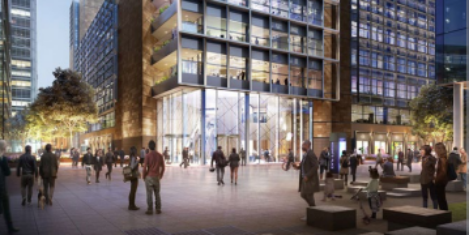
 Research from
Research from 
 Businesses whose personnel are resistant to resuming full-time office working should address the issue of workplace air quality. A survey of UK office workers claims that 80 percent would feel more positive about a return to a five-day office week if action was taken to measure and improve the quality of air in their workplace.
Businesses whose personnel are resistant to resuming full-time office working should address the issue of workplace air quality. A survey of UK office workers claims that 80 percent would feel more positive about a return to a five-day office week if action was taken to measure and improve the quality of air in their workplace. 
 New research from
New research from 
 Pressing the ‘reset’ button is never easy. But I’m a firm believer that, once we do, we become much less averse than we perhaps expected to the change it inevitably brings. This is particularly true of the past eighteen months. From all of the sadness and hardship endured, we are beginning to emerge into a new, changed way of living. One that is both familiar and altogether different. The dichotomy is particularly evident in our workplaces. For many sections of the economy, the office was the ecosystem of our daily working lives. Initial questions of whether the office would survive quickly fell by the wayside, and a more interesting, nuanced, debate of what we want the office to be began.
Pressing the ‘reset’ button is never easy. But I’m a firm believer that, once we do, we become much less averse than we perhaps expected to the change it inevitably brings. This is particularly true of the past eighteen months. From all of the sadness and hardship endured, we are beginning to emerge into a new, changed way of living. One that is both familiar and altogether different. The dichotomy is particularly evident in our workplaces. For many sections of the economy, the office was the ecosystem of our daily working lives. Initial questions of whether the office would survive quickly fell by the wayside, and a more interesting, nuanced, debate of what we want the office to be began. 
 Millions of British workers face uncertainty as a snapshot of the nation’s work practices claims that one in five employees are unsure whether they’ll be expected to work remotely, onsite, or a mix of both in the future. Without having a clear decision from their employer, some employees are unsure about their organisations’ return-to-office plans.
Millions of British workers face uncertainty as a snapshot of the nation’s work practices claims that one in five employees are unsure whether they’ll be expected to work remotely, onsite, or a mix of both in the future. Without having a clear decision from their employer, some employees are unsure about their organisations’ return-to-office plans. 

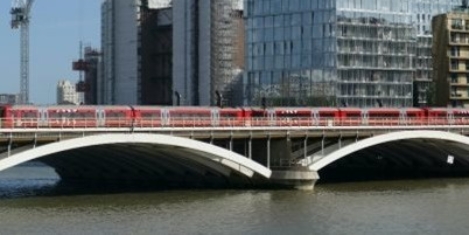
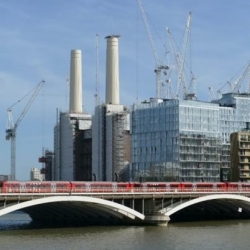 Completions in central London are expected to hit a three-year high, with 5.5m sq ft scheduled for delivery by the end of this year, according to
Completions in central London are expected to hit a three-year high, with 5.5m sq ft scheduled for delivery by the end of this year, according to 
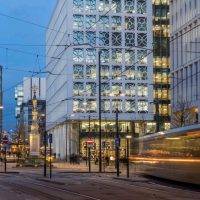 New ways of working will boost UK productivity and increase employment levels in cities outside of London, according to a new report from KPMG. And as businesses in some sectors prepare for employees to spend two to three days a week working from home on a permanent basis, demand for office space could see capacity potentially increase by as much as 40 percent, according to a new KPMG report,
New ways of working will boost UK productivity and increase employment levels in cities outside of London, according to a new report from KPMG. And as businesses in some sectors prepare for employees to spend two to three days a week working from home on a permanent basis, demand for office space could see capacity potentially increase by as much as 40 percent, according to a new KPMG report, 







November 1, 2021
The modern workplace is defined as much by digital space as the physical office
by Wilco Wijnbergen • Comment, Property, Technology